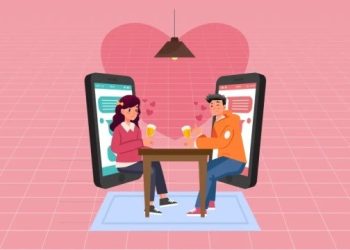For millions of years, we humans were forced to rely solely on our wits to survive. But in recent history, we’ve become utterly dependent on technology, constantly creating more advanced tools to expand what is humanly possible. This relationship is set to accelerate at lightning speed with the rise of artificial intelligence.
While AI has made some inroads into apps, its full capabilities haven’t started to be leveraged for transforming user experiences. The future apps will not only assist us but also understand and care for us on a deeper level. These apps will act as personalized assistants that can anticipate our needs and adapt to our preferences seamlessly. They will change how we do everything from gaming to socializing, and even learning.
Here are five future apps that promise to redefine our world.
Virtual Gaming Apps
Gaming apps, including casino apps, primarily focus on solo play. But the future promises richer social interaction as virtual worlds evolve into thriving communities. Players can traverse expansive digital landscapes, collaborate on in-game projects, and form relationships through story-driven events.
Advanced biometrics may also deepen engagement. Your controller could react to your heartbeat in intense moments, like a losing streak in a casino app, or facial cues offer feedback during conversations with characters. The future will turn today’s most trusted casino gaming apps into more social and fun gaming experiences.
Translation Apps
Global communication faces a persistent challenge, language barriers. Even popular messaging apps like WhatsApp can hit walls when users speak different native tongues. But AI-powered real-time translation could eliminate these obstacles and bring people closer.
Imagine an enhanced WhatsApp that allows you to set translation prompts at the chat level. You could effortlessly converse with family overseas—they see your messages in French, you see theirs in English. The embedding of AI into messaging apps will remove friction, making cross-culture connections more authentic.
Digital Doctors Apps
Access to quality healthcare isn’t always equitable. Cost, location, time and many other factors limit access. But an AI-based diagnostic app could put a skilled doctor in everyone’s pocket.
After collecting relevant health data, the app could conduct medical evaluations and suggest treatment plans. Backed by the latest research, these digital doctors could provide each patient with personalized care, leading to the democratization of healthcare powered by intelligent algorithms that help save lives.
Crop Planning Apps
Farming has always been captive to the whims of weather. However, climate unpredictability makes it harder for farmers to know what to plant and when. An agricultural app could use AI like DeepMind to analyze weather data and patterns to generate optimized crop plans tailored to each region.
By crunching historical info and predictive models, the app can help farmers determine ideal planting windows, recommend appropriate crops, and maximize yields. This intelligence app will give food producers the insights they need to adapt.
Personalized Education Apps
Education apps have expanded access to learning across barriers like geography and age. But in a one-size-fits-all model, they lack personalization. Enter AI tutors. These futuristic educational tools could shape lessons to fit each student’s unique learning style, addressing individual strengths and weaknesses.
For example, imagine an app that analyzes a student’s writing samples. It could discern areas of strength and potential improvement, curating a personalized training program accordingly. With AI-enhanced apps that don’t merely instruct but dynamically adjust their teaching strategies to the needs of each learner, education is set for a revolution.
















